The diseases we research impact people's lives
Our researchers are dedicated to improving lives through neuroscience. Thanks to the generosity of all our donors, that we can continue our legacy of ground-breaking research.
Brazil Family Foundation
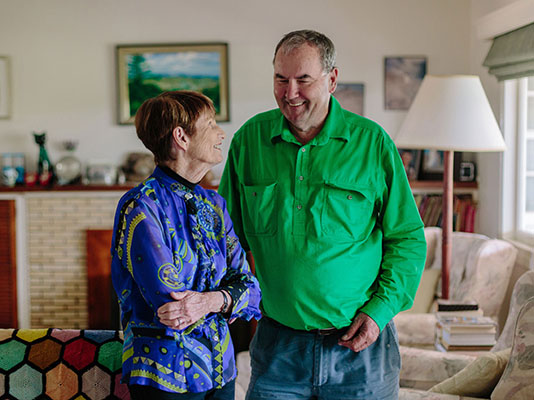
Recognising stroke and motor neurone disease (MND) had only limited treatment options and no cures prompted Lyn and Bobbie Brazil to establish the Brazil Family Program for Neurology in 2017. This enabled us to recruit world-leading researchers and support four laboratories.
Dr Adam Walker’s laboratory has defined some of the early triggers of MND to enable the best targeted approaches for therapies and identified ways to prevent the abnormal accumulation or improve the removal of a protein that causes motor neurons to die.
Dr Tara Walker is examining whether the dietary supplement selenium can prevent or decrease cognitive or motor deficits following stroke.
Dr Matilde Balbi aims to understand how stimulating the cortex in different ways reduces the loss of brain cells after a stroke and whether this mitigates behavioural deficits.
Professor Gail Robinson’s stroke research aims to improve cognitive assessment tests used to evaluate stroke survivors, in the acute phase, to predict long-term outcomes and to develop more targeted, personalised therapy strategies. Professor Robinson also aims to improve our understanding of the biological basis of MND.
The Brazil Family have also donated generously to our Alzheimer’s disease research. This gift contributed to Professor Jürgen Götz and his team’s ground-breaking therapeutic ultrasound approach to target dementia. This research has identified a range of potential applications for ultrasound, including delivering drugs into the brain. The intention is to modify disease progression and ultimately cure brain diseases.
Discovery research leads to the health outcomes of the future, but it takes time and support. Researchers need preliminary data to support their applications for grants. With government grant funding becoming harder to secure , scientists with promising research potential are being lost.
Funding of researchers who narrowly miss out on government grant funding could hold the key to major breakthroughs and, with support, could continue to explore new avenues and build the data needed to be successful in subsequent grant rounds.
The Brazil Family Foundation understands the power of “near-miss” applications and are supporting our scientists with a gift which enables them to continue collecting valuable data to improve their grant success in future funding rounds.
The whole of the QBI community pays tribute to the Brazil Family Foundation whose generosity and support enables us to continue our pathway to expanding our understanding of the brain, the underlying causes of brain disease and help develop new treatments which will benefit the community at large.

Great Ocean Walk, raised over $125 000 to support
brain research.
NFIA Trekkers do the hard yards for QBI
Through the hard work of Brian Davies, a successful businessman and immediate past-president and patron of the National Fire Industry Association (NFIA), and his wife, Liz, QBI was the joint-recipient of a donation of over $250 000 in 2019.
This incredible effort was the result of the NFIA Patron’s Walk held in October, which may sound like a scenic walk in the park but Brian, Liz and seven other NFIA members spent three days enduring driving rain and winds of close to 50 knots coming straight from Antarctica.
The idea for the walk came while the couple were completing the Three Capes Walk to raise money for the Queensland Brain Institute in 2018.
On that walk, Liz suggested to Brian that as the patron of the NFIA, he could create his own walk for charity. Mr Davies believes that corporate Australia has a big responsibility to give back, which is testament to the success of the inaugural walk. The money raised was shared between the Queensland Brain Institute and the Gallipoli Medical Research Foundation (GMRF).
The NFIA walk is the first of three walks to raise money for research at QBI and GMRF, with the aim of raising $500 000 in three years. The donation from the NFIA walk will help QBI’s research into motor neurone disease, dementia, Parkinson’s disease, stroke and QBI’s Discovery Research Endowment fund, which enables fundamental research into major health issues, including depression, anxiety, PTSD and epilepsy. QBI is extremely grateful to Brian and Liz and the NFIA team for their support.
The NFIA walk is the first of three walks to raise money for research at QBI and GMRF, with the aim of raising $500 000 in three years.
The Stafford Fox Medical Research Foundation
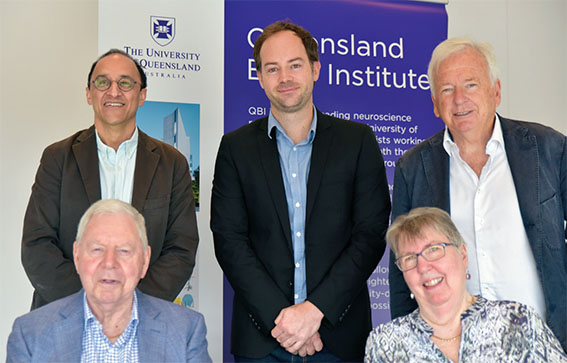
(QBI Director) and Dr Steven Zuryn and Emeritus Professor Perry Bartlett AO (back row).
In 2019, The Stafford Fox Medical Research Foundation confirmed its continued generous support of the prestigious $2.5 million philanthropically funded international fellowship to Dr Steven Zuryn at the Queensland Brain Institute to fight stroke-induced dementia, also known as vascular dementia. The Foundation also continues to support the work of Emeritus Professor Perry Bartlett’s research into prevention of dementia in ageing by improving cognition through exercise.
The Stafford Fox Medical Research Foundation was established in 2013 following the death of Moyna Fox, and named in honour of her late husband, James Stafford Fox, a former BP Australia chief executive.
Stafford and Moyna Fox started one of Australia’s wealthiest medical research foundations after many years of careful planning, resulting in a fund worth over $100 million. It was only publicly revealed in Moyna’s will when she died in 2013, many years after her husband.
James Stafford Fox was a private person, tall, physically imposing, but without a, particularly dominant personality. He rose from a position as a junior clerk at the Port Melbourne depot of the Commonwealth Oil Refineries (COR) in 1932, to become the first Australian chief executive of BP Australia Ltd in 1971.
James Stafford Fox spent three years at the helm of BP Australia, and retired in 1974 at age 60, remaining on several boards until 1985. By 1990, he was in poor health, suffering, among other things, from dementia. He entered a nursing home and died in 1994. By that time, he had already charted the course that would lead to the establishment of the foundation. Moyna lived on for more than 18 years, knowing what would happen after her death, but never revealing it publicly. Eventually, she too succumbed to dementia and died in 2013. The couple, who were so careful with their money and who clearly had no desire for fame and prominence during their lifetime, will now forever be remembered for their generosity in setting up the Stafford Fox Medical Foundation.
The Foundation’s support of QBI is crucial in enabling Emeritus Professor Bartlett and Dr Steven Zuryn to continue their work in finding solutions for the growing challenge of dementia today. This cutting- edge research is helping put Queensland and Australia at the forefront of world medical research.
What your donations fund
Your support can help us achieve a range of achievements

World leading research

Brightest scientific minds

Solutions to global health challenges
"I think it is important for people with dementia, their families and carers, to know that they are not forgotten, and that there’s a lot of work going on behind the scenes at QBI to try to unravel the tangled web that is dementia."
– Robyn Hilton (established the Peter Hilton Senior Research Fellowship in Ageing Dementia)
Hear from one of our supporters
Jeff Maclean, Chair of QBI Advisory Board
Got a story you would like to share?
Are you a donor or supporter of QBI and would like to share your story? We would love to hear from you!
Research in action
Faculty
Associate Professor Victor Anggono
ARC Future Fellow - Group LeaderQueensland Brain InstituteResearcher profile is public:1Supervisor:Researcher biography:Victor Anggono received his PhD in 2007 from the University of Sydney and undertook his postdoctoral training at the Johns Hopkins University in Baltimore, USA. In 2012, Dr Anggono returned to Australia as an NHMRC CJ Martin Research Fellow and joined the Queensland Brain Institute at the University of Queensland, where he is currently a Senior Research Fellow and Group Leader at the Clem Jones Centre for Ageing Dementia Research. His research aims to understand the molecular mechanisms of synaptic vesicle and glutamate receptor trafficking in neurons, processes that are essential for synaptic transmission, plasticity, learning and memory, and how their dysregulations impact on the pathophysiology of neurodegenerative diseases and neuropsychiatric disorders. Dr Anggono has published in journals such as Nature Neuroscience, Neuron, The Proceedings of the National Academy of Sciences USA, Journal of Neuroscience and Cell Reports, and has attracted more than 1500 citations. For his works, Dr Anggono was awarded the Boomerang Award (Australian Society for Biochemistry and Molecular Biology, 2011), the Young Scientist Award (Federation of Asian and Oceanian Biochemists and Molecular Biologists, 2015), the Science to Art Award (NHMRC, 2015) and more recently the Young Investigator Award (Asian-Pacific Society for Neurochemistry, 2016).
Body: Associate Professor Victor Anggono: Synaptic neurobiology
Associate Professor Victor Anggono: Synaptic neurobiologyOur research combines biochemical, molecular and cellular biology in both cell culture (primary neurons and cell lines) and mouse models. We utilise gene editing technology, cutting-edge microscopy, proteomics, next-generation sequencing and behavioural analyses in our study. We are particularly interested in understanding the complex neuronal signalling cascades through protein-protein interactions and post-translational modifications of key synaptic molecules.
Dr Matilde Balbi
Senior Research FellowQueensland Brain InstituteResearcher profile is public:1Supervisor:Researcher biography:Dr. Matilde Balbi is a neuroscientist within the Queensland Brain Institute, The University of Queensland. After receiving her bachelor and master's degree in Medical Biotechnology from the University of Naples,Italy, she spent a year working on traumatic brain injury at the Royal College of Surgeons in Ireland as a research assistant. Dr. Balbi earned her Ph.D. in Neuroscience at the Ludwig Maximilians University in Munich, Germany, working on the regulation of cerebral blood flow in health (ageing) and disease (small vessel disease and subarachnoid haemorrhage). She completed her postdoctoral training at the University of British Columbia in Vancouver, Canada, where she received support and fellowships from the Leducq Foundation, CPSR, MSFHR. She now leads her laboratory which aims to make an impact on the field of stroke recovery and other pathological conditions by combining imaging techniques, brain stimulation and individually tailored recovery paradigms in behaving rodents.
Body: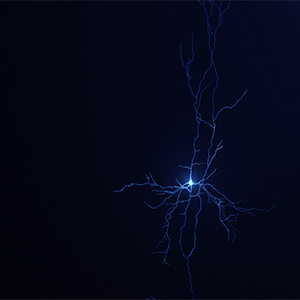 Dr Matilde Balbi: Neuromodulation and homeostatic processes
Dr Matilde Balbi: Neuromodulation and homeostatic processesThe Balbi lab employs a multi-level approach, combining in vivo imaging techniques, brain stimulation—including but not exclusively optogenetics—and AI driven, individually tailored recovery paradigms in behaving rodents, to investigate intrinsic neuroprotective mechanisms of the brain under pathological conditions such as stroke.
Professor Timothy Bredy
NHMRC Senior Research FellowProfessorial Research Fellow - Group LeaderQueensland Brain InstituteResearcher profile is public:1Supervisor:Researcher biography:Research in the Bredy laboratory is aimed at elucidating how the genome is connected to the environment through epigenetic modifications, and how this relationship shapes brain and behaviour throughout life. The group is particularly interested in how epigenetic mechanisms, including DNA methylation, histone modifications. the activity of non-coding RNAs, and RNA modification regulate the formation and maintenance of associative fear-related memory.
Body: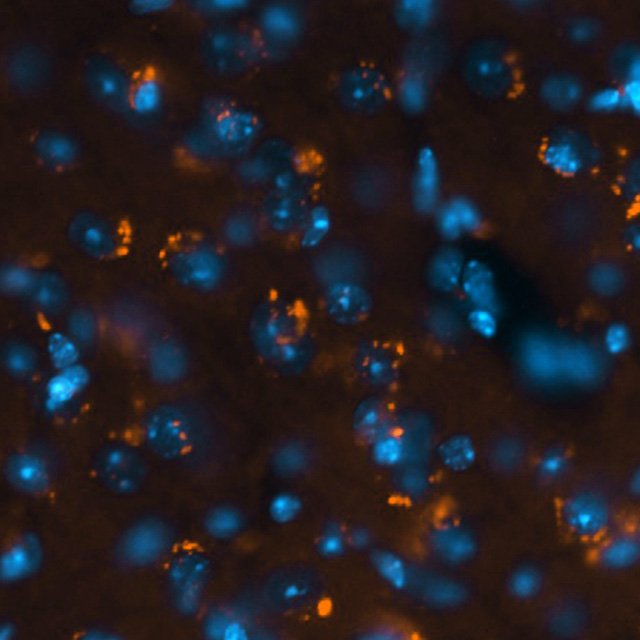 Professor Timothy Bredy: Cognitive neuroepigenetics
Professor Timothy Bredy: Cognitive neuroepigeneticsResearch in the Bredy laboratory is elucidating how the genome is connected to the environment through epigenetic modifications, and how this relationship shapes behaviour throughout life. The group is particularly interested in how epigenetic mechanisms, including DNA methylation, histone modifications and the activity of non-coding RNAs, regulate the formation and maintenance of memory.
Professor Thomas Burne
Professorial Research Fellow - Group LeaderQueensland Brain InstituteResearcher profile is public:1Supervisor:Researcher biography:Professor Burne is a leading Australian researcher in the field of biological psychiatry. Prof. Burne has >150 peer reviewed publications, which have attracted over 8500 citations (H-index 50). His research impact is evident by his 11 papers with >200 citations, with two recognised as Web of Science 'Highly Cited Papers'. Together with collaborators he has been awarded >$8 million in research funding. Since 2003 he has supervised 17 PhD students, and 28 honours students Prof. Burne has a broad background in behavioural neuroscience, with specific training and expertise in animal models. As a Professorial Research Fellow with the Queensland Centre for Mental Health Research and Group Leader at the Queensland Brain Institute (QBI) the focus of his research includes cognitive testing in rodent models of neuropsychiatric disorders, such as schizophrenia, as well as psychopharmacological studies and research on clinical populations. As a CI on several university- and NHMRC-funded grants, he has helped establish infrastructure at QBI for behavioural assessment and methods of automated operant-based cognitive tests in rodents. Prof. Burne is a past president of Biological Psychiatry Australia, he is the Queensland representative for the Australasian Neuroscience Society, and he is a member of the NHMRC Animal Welfare Committee.
Prof. Burne's group studies brain development and behaviour in animal models to learn more about neuropsychiatric diseases, such as schizophrenia. Research is focused on investigating the underlying biological basis for schizophrenia, with the goal of finding public health interventions that will alleviate the burden of this disease. The group has been exploring the impact of developmental vitamin D (DVD) deficiency on brain development, the impact of adult vitamin D deficiency on brain function and behaviour, and the neurobiological affects of having an older father. More recently his group has been focussed on assessing cognitive function in rodents. Prof. Burne's research is carried out in close collaboration with Professors John McGrath and Darryl Eyles, in a multidisciplinary team. Together they have an integrated research program using a broad range of neuroscientific techniques to explore potential causes of schizophrenia. There is a particular focus on early life, nongenetic risk factors and the team has skills in epidemiology, psychiatry, neuroanatomy, molecular biology, developmental biology and behavioural neuroscience. The Burne group is currently developing animal models related to risk factors for schizophrenia and autism.
Body: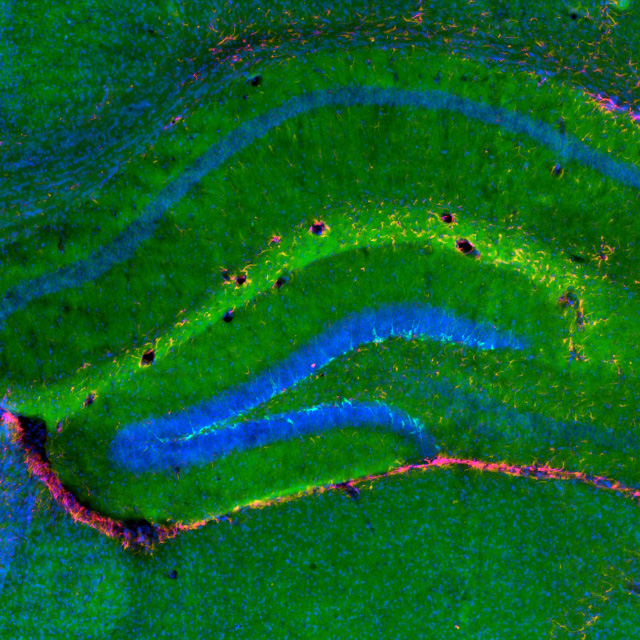 Professor Thomas Burne: Developmental neurobiology
Professor Thomas Burne: Developmental neurobiologyProfessor Thomas Burne’s laboratory studies brain development and behaviour in animal models. The laboratory is focused on investigating the underlying biological basis for schizophrenia, with the goal of finding public health interventions that will alleviate the burden of this disease.
Professor Helen Cooper
Deputy Director (Research)Queensland Brain InstituteResearcher profile is public:1Supervisor:Body: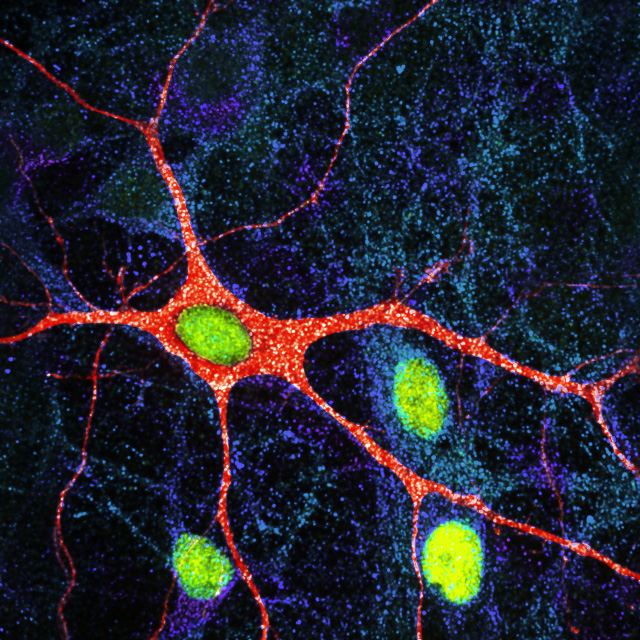 Professor Helen Cooper: Neural migration
Professor Helen Cooper: Neural migrationCurrent research in the Cooper laboratory explores the fundamental cellular and molecular mechanisms governing the development of the neocortex. The group has identified unexpected, novel roles for the axon guidance receptors Neogenin (a netrin receptor) and Ryk (a Wnt receptor) in neural stem cell biology, neurogenesis, dendrite outgrowth and synaptogenesis. The Cooper group has shown that loss of these receptors in the mouse leads to cortical malformations which are equivalent to those seen in humans.
Professor Elizabeth Coulson
Group Leader in Dementia Research, Clem Jones Centre for Ageing Dementia Research & Professor and Professorial Research FellowQueensland Brain InstituteHead of SchoolSchool Biomedical ScienceResearcher profile is public:1Supervisor:Researcher biography:Professor Elizabeth (Lizzie) Coulson did her undergraduate Honours degree at the University of Melbourne, majoring in Genetics and Biochemistry. Her PhD (1997) in the Department of Pathology, University of Melbourne, with Professor Colin Masters, was on the normal function of the amyloid precursor protein of Alzheimer's disease. Following a year at the ZMBH, University of Heidelberg, Germany, she pursued postdoctoral work studying neuronal cell death in neurodegeneration and development at the Walter and Eliza Hall Institute with Professor Perry Bartlett before being recruited in 2003 to the University of Queensland as a founding member of the Queensland Brain Institute. She was appointed Professor in 2015, joining the School of Biomedical Sciences and becoming Deputy Head of School in 2016/7 and 2019 and Head of School in 2020. She maintains a 20% Queensland Brain Institutes appointment and is a member of the Clem Jones Centre for Ageing Dementia Research.
Her Lab webpage is: Coulson Lab - Neurotrophin - School of Biomedical Sciences ...
Body: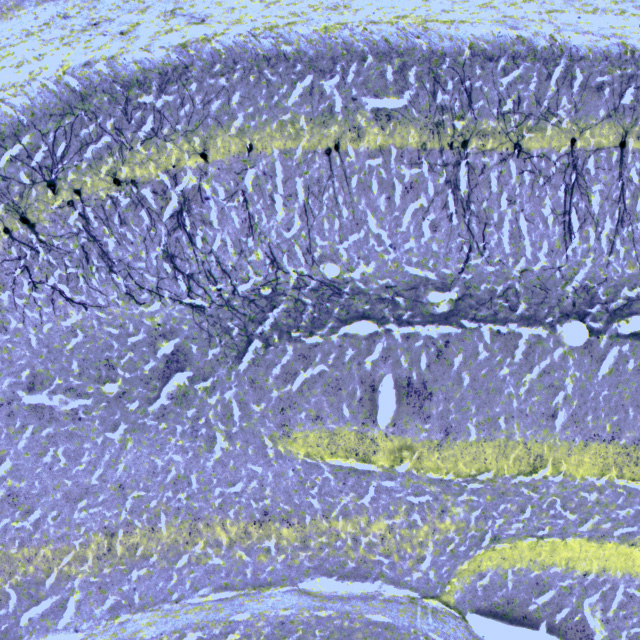 Professor Elizabeth Coulson: Neurotrophins in Alzheimer’s disease
Professor Elizabeth Coulson: Neurotrophins in Alzheimer’s diseaseThe Coulson laboratory is investigating how and why certain neurons die in neurodegenerative diseases including Alzheimer’s disease (AD) and motor neuron disease (MND). Their work focusses on the p75 neurotrophin receptor (p75NTR) and its role in neuronal loss, particularly the nerve cell degeneration that occurs in cholinergic neurons in the brain and spinal cord.
Dr Nathalie Dehorter
Senior Research FellowQueensland Brain InstituteResearcher profile is public:1Supervisor:Body: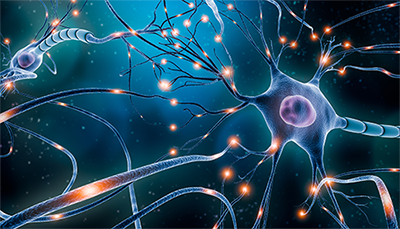 Dr Nathalie Dehorter: Neuronal Development
Dr Nathalie Dehorter: Neuronal Development Researchers in the Dehorter lab seek to understand the molecular and physiological tuning of interneurons during development and in pathology such as autism, schizophrenia or Parkinson’s disease, using high-level tools in electrophysiology, imaging, molecular biology and genetics.
Professor Barry Dickson
Professorial Research FellowQueensland Brain InstituteResearcher profile is public:1Supervisor:Body: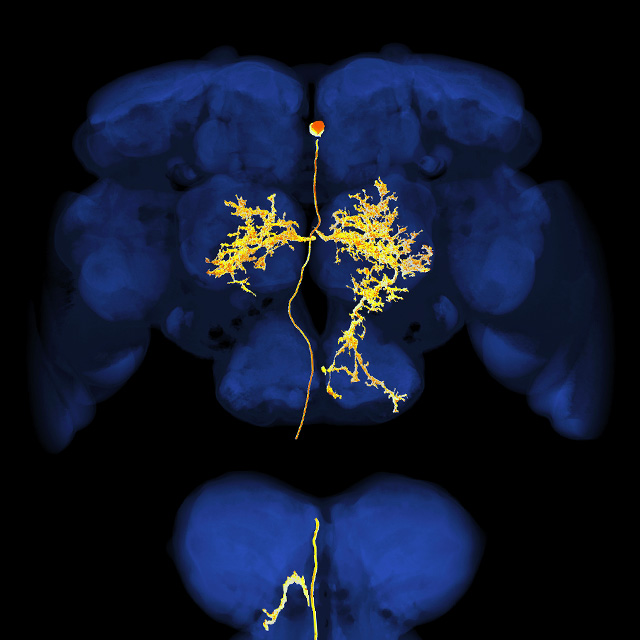 Professor Barry Dickson: Neural circuits and behaviour
Professor Barry Dickson: Neural circuits and behaviourThe Dickson laboratory investigates the neural circuits that control walking in the fruit fly, Drosophila melanogaster. The goal is to understand how local circuits in the nerve cord produce rhythmic motor patterns, how these patterns are co-ordinated across each leg joint and all six legs, and how descending signals from the brain modulate these operations to alter the fly's direction, speed and gait.
Professor Darryl Eyles
Professor (Conjoint)Queensland Brain InstituteResearcher profile is public:1Supervisor:Researcher biography:Prof Darryl Eyles is the head of the Queensland Centre for Mental Health Research Developmental Neurobiology laboratory. One of Darryl's research directions is focused on how known risk-factors for schizophrenia change the way the brain develops. His group have established the biological plausibility of various epidemiological risk factors for this disease including developmental vitamin D deficiency, prenatal hypoxia and maternal immune activation. Strikingly all these exposures affect the early development and later differentiation of early dopamine neurons. A second major focus is on understanding the effects of increased dopamine release in selective circuits and how this may be causal in schizophrenia. A third major interest is in factors such as the gut microbiome, and how increased testosterone contribute to altered brain function related to autism.
Body: Professor Darryl Eyles: Neurobiology
Professor Darryl Eyles: NeurobiologyWith a particular focus on dopamine systems, the Eyles laboratory focusses on how risk factors for schizophrenia and autism, such as developmental vitamin D (DVD) deficiency and maternal immune activation, change the way the brain develops and functions.
Professor Geoff Faulkner
Professor in NeuroscienceQueensland Brain InstituteResearcher profile is public:1Supervisor:Body: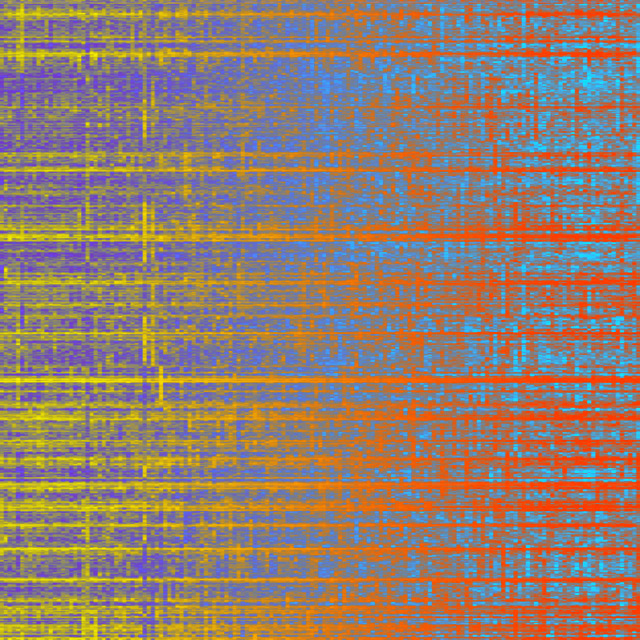 Professor Geoff Faulkner: Computational and molecular biology
Professor Geoff Faulkner: Computational and molecular biologyOur core research seeks to understand the role of retrotransposons, a type of “mobile DNA”, in causing genetic mosaicism in early mammalian embryogenesis, and in neurons. This variation may be a fundamental aspect of healthy brain function, and appears to change in neurological diseases, including Rett syndrome, schizophrenia and Alzheimer's disease.
Professor Jürgen Götz
Director of CJCADR & Director of CJCADR - GLQueensland Brain InstituteResearcher profile is public:1Supervisor:Researcher biography:Professor Jürgen Götz (PhD, Dr. habil, FAHMS, GAICD) is Foundation Chair of Dementia Research, Director of the Clem Jones Centre for Ageing Dementia Research at the Queensland Brain Institute (University of Queensland), NHMRC Leadership Fellow and Ultrasound Team Leader. In 2023 he became the Lesleigh Green - Bill and Nancy Green Endowed Chair in Dementia Research. Jürgen Götz performed undergraduate studies at the Biocenter of the University of Basel, before joining the laboratory of Nobel Laureate Georges Köhler to obtain his PhD degree in immunology. Subsequently, he took up postdoctoral positions at UCSF (San Francisco) and Sandoz Ltd (now Novartis, Basel), and worked as Research Group Leader (venia legendi, Dr. habil.) at the University of Zurich (Switzerland). Before taking up his current position, Jürgen Götz was a Professor and Chair of Molecular Biology at the University of Sydney.
Jürgen Götz is a highly cited researcher (Clarivate) and an expert in basic and translational research in Alzheimer's disease (AD), focusing on the cellular and molecular mechanisms of how Tau and Aβ cause neurodegeneration, using transgenic and cellular models, and exploring low-intensity ultrasound as a novel treatment modality for AD and other brain diseases (>220 publications, including in leading journals such as Science, Cell, Lancet and Neuron; h-index = 86, 27,800+ citations, Google Scholar). Jürgen Götz and his team have built a clinical trial-ready therapeutic ultrasound device and started a first-in-human safety trial in 12 Alzheimer patients (April 2023).
Body: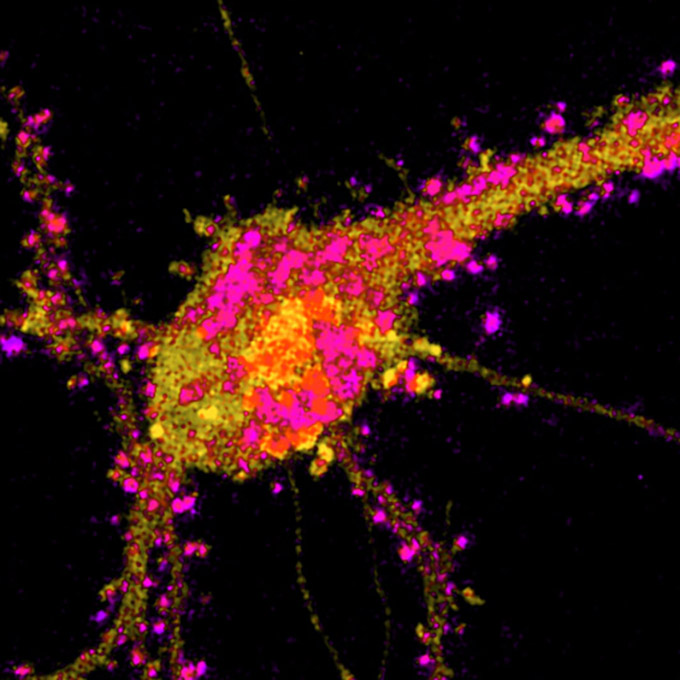 Professor Jürgen Götz: Ageing dementia and therapeutic ultrasound
Professor Jürgen Götz: Ageing dementia and therapeutic ultrasoundThe Götz laboratory, which forms part of the Clem Jones Centre for Ageing Dementia Research (CJCADR), aims to understand disease initiation and progression at a molecular and cellular level using cellular and animal models, and to develop novel therapies. We are applying the tools we are developing to also understand fundamental mechanisms of memory or the physiological role of proteins implicated in disease. In recent years, a major focus for the group is in developing therapeutic ultrasound into a treatment modality for human disease.
Professor Massimo Hilliard
NHMRC Leadership Fellow - GLQueensland Brain InstituteResearcher profile is public:1Supervisor:Researcher biography:Queensland Brain Institute
Dr Massimo A. Hilliard received his PhD in Biological Chemistry and Molecular Biology in 2001 from the University of Naples, Italy. His experimental work, performed at the Institute of Genetics and Biophysics of the CNR (Italian National Council of Research), was aimed at understanding the neuronal and genetic basis of aversive taste behavior (bitter taste) in C. elegans.
During his first postdoc at the University of California, San Diego, using the Ca2+ indicator Cameleon he published the first direct visualisation of chemosensory activity in C. elegans neurons. In his second postdoctoral work at the University of California, San Francisco and at The Rockefeller University, he switched from neuronal function to neuronal development, focusing in particular on how neurons establish and orient their polarity with respect to extracellular cues.
From September 2007, he is at the Queensland Brain Institute where he established an independent laboratory.
Body: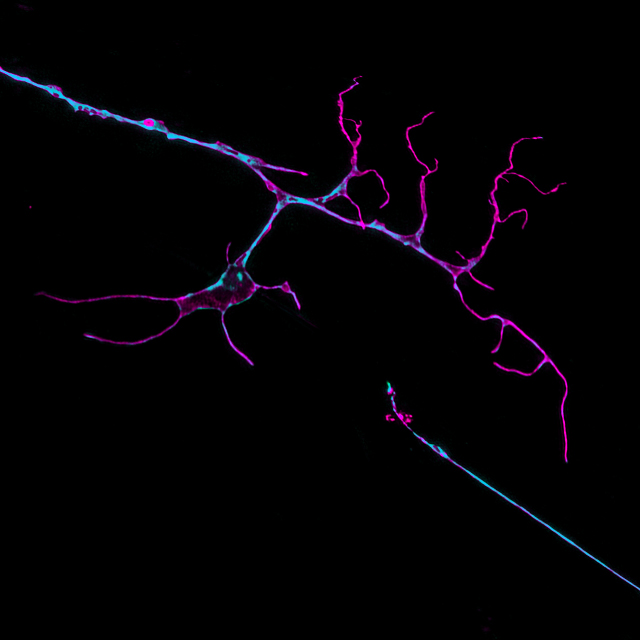 Professor Massimo Hilliard: Molecular and cellular neurobiology
Professor Massimo Hilliard: Molecular and cellular neurobiologyThe Hilliard laboratory is focused on understanding the molecular mechanisms that regulate neuronal development, maintenance and repair, using C. elegans as a model system. The group’s current research goals are: (1) how the axon, which is the longest of the neuronal processes, is subdivided into structurally and functionally different compartments, (2) how the axon maintains its structure and function over the lifetime of the organism, and (3) how the axon can be repaired when severing damage occurs.
Associate Professor Zhitao Hu
Honorary Associate ProfessorQueensland Brain InstituteResearcher profile is public:0Supervisor:Body: Associate Professor Zhitao Hu: Neurotransmitter release
Associate Professor Zhitao Hu: Neurotransmitter releaseThe Hu group focusses on candidate genes to understand their functional importance in synapses.
Dr Dhanisha Jhaveri
Senior Research FellowQueensland Brain InstituteResearcher profile is public:1Supervisor:Researcher biography:Dr Dhanisha Jhaveri has a joint appointment at Mater Research and the Queensland Brain Institute (QBI) and is a Mater Foundation Senior Research Fellow and a Group Leader. Dhanisha's research group is investigating the fundamental mechanisms that drive the renewal of neurons in the adult brain, with the goal of harnessing this form of neural plasticity to relieve the emotional and cognitive burdens associated with chronic stress and depression.
Dhanisha received her PhD from the Tata Institute of Fundamental Research (TIFR), India, under the supervision of Professor Veronica Rodrigues, where she unravelled the molecular mechanisms that wire the olfactory axons in the fly (Drosophila) brain. In recognition of her doctoral work she was awarded the Indian National Science Academy medal for Young Scientist of the Year in 2003. Fascinated by the discovery that the production of new neurons continues in the adult brain, she then joined the laboratory of Professor Perry Bartlett at the Queensland Brain Institute as a Human Frontiers Science Program Postdoctoral Fellow. She has made major discoveries that have transformed our understanding of the regulation and roles of neural stem cells in the adult brain. Her work uncovered that a subclass clinical antidepressants directly activates neural stem cells in the hippocampus, a brain region implicated in regulating mood and cognitive functions. She also pioneered the development of a new cell sorting protocol to purify neural stem cells which revealed presence of distinct stem cell populations in this brain region.
Body: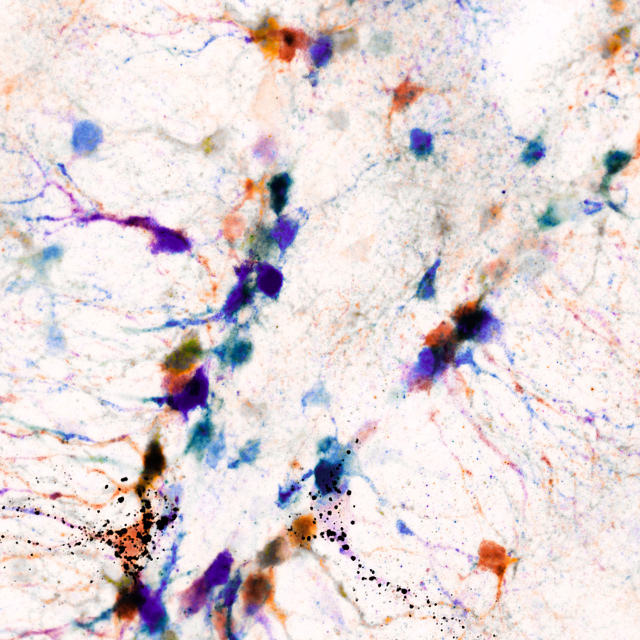 Dr Dhanisha Jhaveri: Cellular regulation of stress and depression
Dr Dhanisha Jhaveri: Cellular regulation of stress and depressionThe Jhaveri group goals are to uncover new mechanisms that are central to neurogenic regulation and learn how new neurons impact neural circuits and behaviour, and translate these principles to better understand and ultimately treat cognitive and mood-related deficits associated with anxiety and depression.
Dr Zhaoyu Li
Group LeaderQueensland Brain InstituteResearcher profile is public:1Supervisor:Body: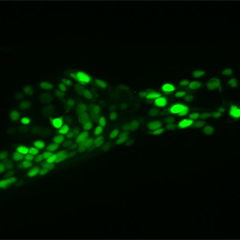 Dr Zhaoyu Li: Neural circuit and behaviour
Dr Zhaoyu Li: Neural circuit and behaviourThe Li group uses C. elegans, currently the only organism with a completely mapped connectome, to address these questions. We employ multifaceted approaches including calcium imaging, optogenetics, behavioural genetic screen and molecular genetics to study the function and dysfunction of neural network in healthy and diseased animals.
Professor Jason Mattingley
NHMRC Leadership FellowQueensland Brain InstituteResearcher profile is public:1Supervisor:Researcher biography:Professor Jason Mattingley was appointed as Foundation Chair in Cognitive Neuroscience at the University of Queensland in January 2007, a joint appointment between the Queensland Brain Institute and the School of Psychology.
He completed a Bachelor of Science Degree with Honours at Monash University (1988), a Master of Science Degree in Clinical Neuropsychology at the University of Melbourne (1990), and a PhD in Psychology at Monash University (1995). In 1994 he was awarded an NHMRC Neil Hamilton Fairley Post-Doctoral Fellowship, which he took to the University of Cambridge. Here he worked jointly with Professor Jon Driver in the Department of Experimental Psychology and Professor Ian Robertson at the MRC Cognition and Brain Sciences Unit. While in Cambridge he was elected a Fellow of King's College.
Upon returning to Australia Professor Mattingley was appointed as Senior Research Fellow (later Principal Research Fellow) at the University of Melbourne, where he was Director of the Cognitive Neuroscience Laboratory within the School of Behavioural Science (2000 – 2006).
Professor Mattingley has won numerous accolades for his research, including an Australian Laureate Fellowship from the Australian Research Council (2012), the Distinguished Contribution to Psychological Science Award from the Australian Psychological Society (2012), and the Monash University Distinguished Alumni Award (Faculty of Biomedical and Psychological Sciences, 2016).
He was elected a Fellow of the Academy of Social Sciences in Australia in 2007, and a Fellow of the Association for Psychological Science in 2016.
Body: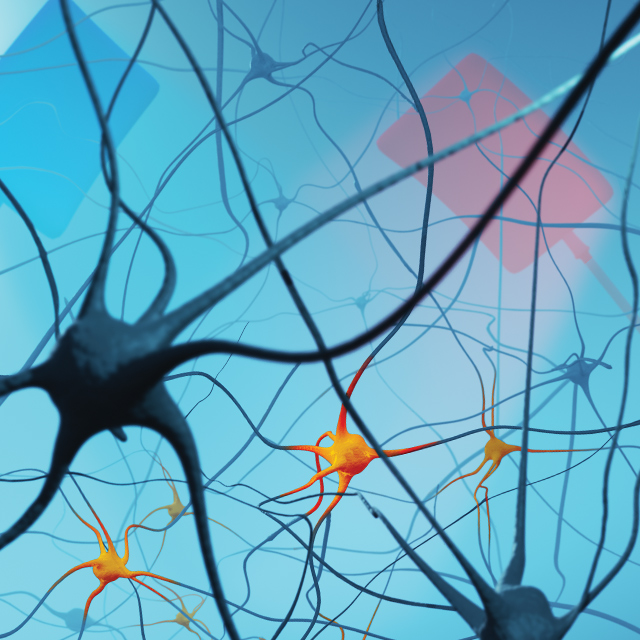 Professor Jason Mattingley: Cognitive neuroscience
Professor Jason Mattingley: Cognitive neuroscienceResearchers in the Mattingley laboratory seek to understand the roles played by selective attention, prediction and decision making in regulating perceptual, cognitive and motor functions in the human brain, in health and disease.
Professor John McGrath
Conjoint ProfessorQueensland Brain InstituteResearcher profile is public:1Supervisor:Researcher biography:John McGrath AM, MBBS, MD, PhD, FRANZCP, FAHMS
John McGrath is a psychiatrist interested in discovering the causes of serious mental disorders. He is the Director of the Queensland Centre for Mental Health Research and conjoint Professor at the Queensland Brain Institute His research aims to generate and evaluate nongenetic risk factors for schizophrenia. He has forged productive cross-disciplinary collaborations linking risk factor epidemiology with developmental neurobiology. For example, John and his colleagues have made discoveries linking prenatal vitamin D and later risk of mental illness in the offspring. In addition, John has supervised major systematic reviews of the epidemiology of schizophrenia. He was awarded a John Cade Fellowship by the Australian National Health and Medical Research Council. In 2016 he was also awarded a Neils Bohr Professorship by the Danish National Research Foundation.
Body: Professor John McGrath: Epidemiology and clinical trials
Professor John McGrath: Epidemiology and clinical trialsThe McGrath laboratory aims to explore risk factors linked to schizophrenia and other mental disorders. They focus on non-genetic factors that are potentially modifiable. In recent years the team has been examining the impact of low vitamin D (the "sunshine hormone") during early brain development and on adult brain function.
Research Interests
The association between vitamin D status and brain outcomes
In collaboration with Darryl Eyles, we are measuring early life vitamin D status and exploring if this changes the risk of later developing serious mental illness. These studies are in collaboration with colleagues in Denmark, Sweden and the Netherlands.The demographic and clinical correlates of psychotic-like experiences
Using two large surveys conducted in Australia in 1997 and 2007, our group have undertaken a suite of studies designed to understand the clinical relevance of isolated psychotic-like experiences. Over recent years we have published many papers on this topic, and have made important contributions with respect to how psychotic-like experiences are associated with (a) an increased risk of later psychotic disorders (based on the MUSP study), (b) depression, anxiety and substance use disorders, (c) a family history of mental illness, (d) exposure to trauma, (e) an increased risk of suicidal ideation and behaviour, (f) general physical health, and (g) help-seeking.The Survey of High Impact Psychosis (SHIP)
Our group was one of seven sites involved in the design and administration of the second Australian Survey of psychotic disorders. In collaboration with a large national team, we continue to explore key issues related to the needs of people with psychosis in Australia.Related Research
Professor John McGrath was awarded a John Cade Fellowship in Mental Health Research by the National Health and Medical Research Council (NHMRC) in 2013 (NHMRC grant APP1056929). This five year fellowship will support Professor McGrath’s existing research into modifiable risk factors for schizophrenia.
In particular, the Fellowship will enable Professor McGrath and his team to build a clinical trials platform in South-East Queensland. These trials, collectively known as Cadence, will be broadly related to improving clinical outcomes for people with psychosis, particularly early psychosis. See the Cadence website for more information.
Professor Frederic Meunier
Professor and Academic Senior Group/Unit Leader/SupervisorQueensland Brain InstituteResearcher profile is public:1Supervisor:Researcher biography:Professor Frederic Meunier obtained his Masters degree in Neurophysiology at the Paris XI University, France in 1992 and completed his Ph.D in Neurobiology at the CNRS in Gif-sur-Yvette, France in 1996. He was the recipient of a European Biotechnology Fellowship and went on to postgraduate work at the Department of Biochemistry at Imperial College (1997-1999) and at Cancer Research UK (2000-2002) in London, UK. After a short sabbatical at the LMB-MRC in Cambridge (UK), he became a group leader at the School of Biomedical Sciences at the University of Queensland (Australia) in 2003. He joined the Queensland Brain Institute of the University of Queensland in 2007 and obtained an NHMRC senior research fellowship in 2009 renewed in 2014 with promotion. He became Professor in 2014 at the Queensland Brain Institute and is currently part of the Centre for Ageing Dementia Research.
Body: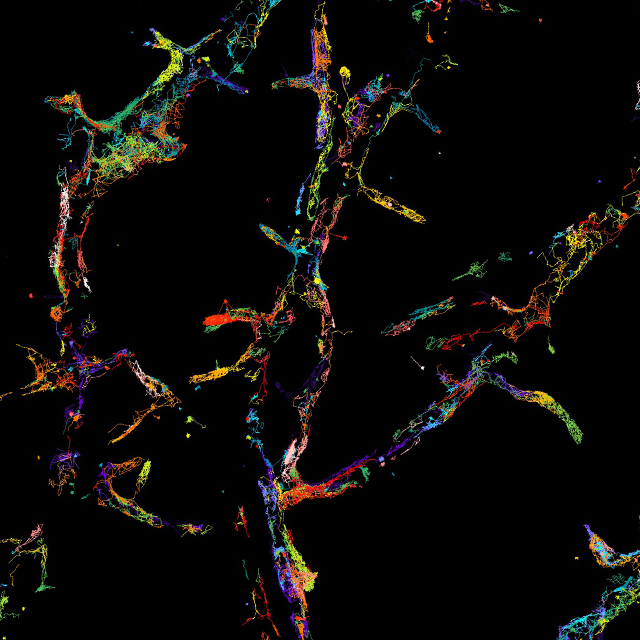 Professor Frederic Meunier: Single Molecule Neuroscience Laboratory
Professor Frederic Meunier: Single Molecule Neuroscience LaboratoryThe overall goal of our research is to determine how brain cells communicate and survive in health and disease. Our lab focuses on the molecular events that govern vesicular trafficking within presynaptic nerve terminals and neurosecretory cells. Our discoveries have led to a deep understanding of how secretory vesicles interact with the cortical actin network prior to fusing with the plasma membrane to release the neurotransmitter.
Selected recent publications
Visualizing endocytic recycling and trafficking in live neurons by subdiffractional tracking of internalized molecules
Joensuu, Merja, Martinez-Marmol, Ramon, Padmanabhan, Pranesh, Glass, Nick R., Durisic, Nela, Pelekanos, Matthew, Mollazade, Mahdie, Balistreri, Giuseppe, Amor, Rumelo, Cooper-White, Justin J., Goodhill, Geoffrey J. and Meunier, Frederic A. (2017) Nature Protocols, 12 12:2590-2622. doi:10.1038/nprot.2017.116In vivo single-molecule imaging of syntaxin1A reveals polyphosphoinositide- and activity-dependent trapping in presynaptic nanoclusters
Bademosi, Adekunle T., Lauwers, Elsa, Padmanabhan, Pranesh, Odierna, Lorenzo, Chai, Ye Jin, Papadopulos, Andreas, Goodhill, Geoffrey J., Verstreken, Patrik, Van Swinderen, Bruno and Meunier, Frederic A. (2017) Nature Communications, 8 . doi:10.1038/ncomms13660Subdiffractional tracking of internalized molecules reveals heterogeneous motion states of synaptic vesicles
Joensuu, Merja, Padmanabhan, Pranesh, Durisic, Nela, Bademosi, Adekunle T. D., Cooper-Williams, Elizabeth, Morrow, Isabel C., Harper, Callista B., Jung, WooRam, Parton, Robert G., Goodhill, Geoffrey J., Papadopulos, Andreas and Meunier, Frederic A. (2016) Journal of Cell Biology, 215 2: 277-292. doi:10.1083/jcb.201604001Flux of signalling endosomes undergoing axonal retrograde transport is encoded by presynaptic activity and TrkB
Wang, Tong, Martin, Sally, Nguyen, Tam H., Harper, Callista B., Gormal, Rachel S., Martinez-Marmol, Ramon, Karunanithi, Shanker, Coulson, Elizabeth J., Glass, Nick R., Cooper-White, Justin J., Van Swinderen, Bruno and Meunier, Frederic A. (2016) Nature Communications, 7 . doi:10.1038/ncomms12976The Munc18-1 domain 3a hinge-loop controls syntaxin-1A nanodomain assembly and engagement with the SNARE complex during secretory vesicle priming
Kasula, Ravikiran, Chai, Ye Jin, Bademosi, Adekunle T., Harper, Callista B., Gormal, Rachel S., Morrow, Isabel C., Hosy, Eric, Collins, Brett M., Choquet, Daniel, Papadopulos, Andreas and Meunier, Frederic A. (2016) The Journal of Cell Biology, 214 7: 847-858. doi:10.1083/jcb.201508118Munc18-1 is a molecular chaperone for α-synuclein, controlling its self-replicating aggregation
Chai, Ye Jin, Sierecki, Emma, Tomatis, Vanesa M., Gormal, Rachel S., Giles, Nichole, Morrow, Isabel C., Xia, Di, Götz, Jürgen, Parton, Robert G., Collins, Brett M., Gambin, Yann and Meunier, Frédéric A. (2016) The Journal of Cell Biology, 214 6: 705-718. doi:10.1083/jcb.201512016Profiling of free fatty acids using stable isotope tagging uncovers a role for saturated fatty acids in neuroexocytosis
Narayana, Vinod K., Tomatis, Vanesa M., Wang, Tong, Kvaskoff, David and Meunier, Frederic A. (2015) Cell Chemistry and Biology, 22 11: 1552-1561. doi:10.1016/j.chembiol.2015.09.010Control of autophagosome axonal retrograde flux by presynaptic activity unveiled using botulinum neurotoxin type A
Wang, Tong, Martin, Sally, Papadopulos, Andreas, Harper, Callista B., Mavlyutov, Timur A., Niranjan, Dhevahi, Glass, Nick R., Cooper-White, Justin J., Sibarita, Jean-Baptiste, Choquet, Daniel, Davletov, Bazbek and Meunier, Frederic A. (2015) Journal of Neuroscience, 35 15: 6179-6194. doi:10.1523/JNEUROSCI.3757-14.2015Activity-driven relaxation of the cortical actomyosin II network synchronizes Munc18-1-dependent neurosecretory vesicle docking
Papadopulos, Andreas, Gomez, Guillermo A., Martin, Sally, Jackson, Jade, Gormal, Rachel S., Keating, Damien J., Yap, Alpha S. and Meunier, Frederic A. (2015) Nature Communications, 6 6297: 1-11. doi:10.1038/ncomms7297An acto-myosin II constricting ring initiates the fission of activity-dependent bulk endosomes in neurosecretory cells
Gormal, Rachel S, Nguyen, Tam H, Martin, Sally, Papadopulos, Andreas and Meunier, Frederic A (2015) Journal of Neuroscience, 35 4: 1380-1389. doi:10.1523/JNEUROSCI.3228-14.2015Professor Bryan Mowry
Academic Title Holder - ProfessorQueensland Brain InstituteResearcher profile is public:1Supervisor:Researcher biography:Bryan is a graduate in medicine from the University of Queensland and holds a BA (Hons) degree in philosophy from the University of Western Australia. A medical specialist in psychiatry, he is a clinician researcher, who is Conjoint Professor at the Queensland Brain Institute, University of Queensland, and Director of Genetics at the Queensland Centre for Mental Health Research. His primary research interest is the molecular genetics of schizophrenia, and holds a MD degree (University of Queensland) in this field. Since 1990, he has conducted studies, with national and international collaborators, to identify susceptibility genes for this disorder. He is the recipient of grants from the Australian NHMRC and the US NIMH.
The primary research goal is to identify and functionally characterise susceptibility genes for schizophrenia and related disorders. A special focus is on the study of large collaborative samples and ethnically homogeneous populations. Key methodologies used in the lab include genome-wide association studies, next-generation sequencing, transcriptome profiling of post-mortem brain samples, neurocognitive and neuroimaging phenotyping and induced pluripotent stem cells.
Current areas of interest include pharmacogenomics of clozapine treatment response, whole exome sequencing focused on de novo mutations, and the neuroimmunology of schizophrenia
Body: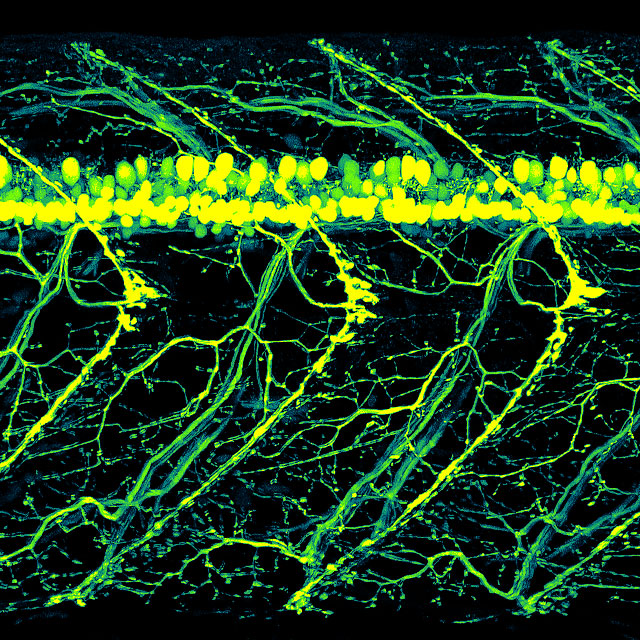 Professor Bryan Mowry: Psychiatric genomics
Professor Bryan Mowry: Psychiatric genomicsOur primary research goals are (i) to identify susceptibility genes for schizophrenia and related disorders and (ii) understand both their normal and pathologic functions in the brain. To investigate these two broad areas of research, we use a wide range of methodologies and techniques ranging from high-throughput sequencing technologies, quantitative genetics, systems biology and deep learning, through to animal models and cutting-edge microscopy. Our research is organised into the following themes:
Current collaborations
- Dr Rangaswamy Thara - Schizophrenia Research Foundation (SCARF), Chennai, India
- Prof Matthew Brown - Diamantina Institute, The University of Queensland
- A/Prof Naomi Wray - Queensland Brain Institute, The University of Queensland
- Prof Peter Visscher - Queensland Brain Institute, The University of Queensland
- Prof David Reutens - Centre for Advanced Imaging, The University of Queensland
- Prof Lynn Jorde - University of Utah School of Medicine, Salt Lake City, Utah
- Psychiatric Genetics Consortium, Schizophrenia
- Molecular Genetics of Schizophrenia Consortium
- Australian Schizophrenia Research Bank
Associate Professor Fatima Nasrallah
Principal Research FellowQueensland Brain InstituteResearcher profile is public:1Supervisor:Researcher biography:Dr. Nasrallah is a neuroscientist with a background in magnetic resonance and interdisciplinary brain research. She graduated with a PhD in neurochemistry and NMR from the Neuroscience Research Australia Institute (NeurRA) at the University of New South Wales in 2009. In April 2009, She spent 3 years at the Singapore Bioimaging Consortium (A*STAR) where she pioneered the use of magnetic resonance imaging as a tool in cognitive brain research in the rodent. In 2013, she was appointed as senior research fellow at the Clinical Imaging Research Center where she delved into the clinical realms of human imaging. In late 2015, she returned to Australia as a Motor Accident and Injury Commission fellow at the Queensland Brain Institute (QBI) at the University of Queensland (UQ) where she independently heads her own group. Her research spans basic and clinical brain research with the the overall aim of understanding how the brain functions in health and injury, specifically, developing methods for early diagnosis of primary biomarkers following injury and translating these findings.
Body: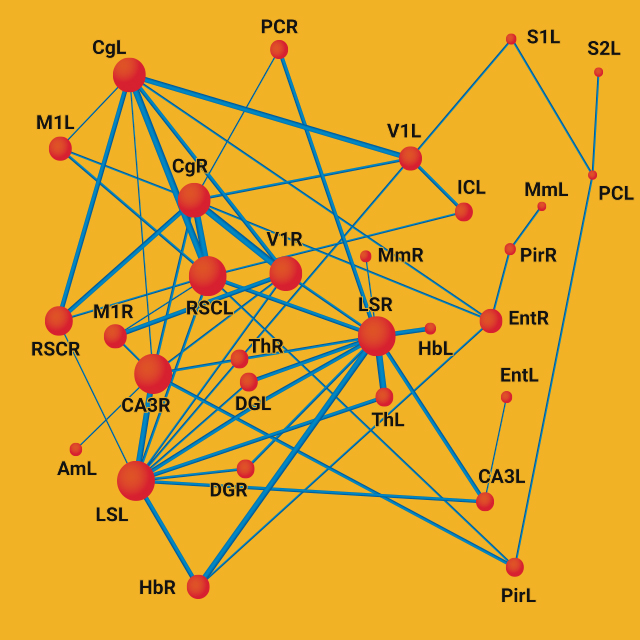 A/Prof Fatima Nasrallah: Functional neuroimaging and brain injury
A/Prof Fatima Nasrallah: Functional neuroimaging and brain injuryOur laboratory aims to harness multimodality methods to identify and comprehend the fundamental mechanisms triggered following TBI. This will allow mapping of structural, functional, metabolic and molecular changes in the brain in an attempt to cross-link imaging metrics with behavioural measures and protein biomarkers, giving insight into the pathophysiology of TBI and its link to dementia.
Professor Peter Nestor
Professor in NeuroscienceQueensland Brain InstituteResearcher profile is public:1Supervisor:Researcher biography:Prof Nestor joined the Queensland Brain Institute in October/2017 and has a conjoint appointment as a cognitive neurologist at Mater Misericordiae Ltd (Mater Hospital).
His particular interests include understanding the earliest stages of Alzheimer's disease (i.e. before dementia is established); atypical forms of dementia with a particular focus on primary progressive aphasia and dementias related to Parkinson's and Lewy body diseases; and improving differential diagnosis between the major categories of neurodegenerative diseases.
He works on development of neuropsychological tests of cognition, both to accurately track change over time and improve diagnostic accuracy between the major diseases causing dementia. He also uses multi-modal imaging (magnetic resonance imaging [MRI] and positron emission tomography [PET]) to understand the sequence of events occurring in degenerative brain diseases (particularly Alzheimer's disease, frontotemporal dementia, Parkinson's disease, motor neuron disease [ALS], progressive supranuclear palsy [PSP] and corticobasal degeneration [CBD]) and identify novel biomarkers. A major focus of his is on developing novel approaches to MR imaging for single subject pathological diagnoses that can be exported into the everyday clinical setting; recent examples include diffusion tensor imaging to identify PSP and CBD (Sajjadi et al, 2013) and quantitative susceptibility mapping in Parkinson's disease (Acosta-Cabornero et al, 2013).
Body: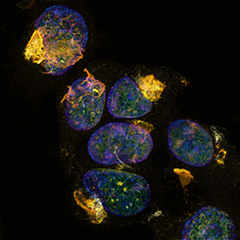 Professor Peter Nestor: Cognitive neurology
Professor Peter Nestor: Cognitive neurologyProfessor Nestor aims to relate the neuropsychological and behavioural profiles of degenerative dementias, such as Alzheimer's disease and frontotemporal dementia, to regional brain damage through neuroimaging (MRI and PET) and histopathological analysis. His particular interest is the pathological landscape of incipient dementia (so-called mild cognitive impairment).
Professor Gail Robinson
Professorial Research FellowQueensland Brain InstituteResearcher profile is public:1Supervisor:Researcher biography:Professor Gail Robinson holds a joint Queensland Brain Institute and the School of Psychology appointment. She has been a clinical neuropsychologist and researcher for ~25 years in Australia and in London (UK), where she spent 14 years at the dynamic and historic National Hospital of Neurology and Neurosurgery, Queen Square, London. In 2010, she transitioned from a clinical role to an academic position at The University of Queensland where was Director of the Clinical Neuropsychology Doctoral programme (2010-2018), taking up this lead role again in 2023. Her clinical research is focused on both theoretical questions about brain-behaviour relationships like the crucial mechanisms for the executive control of language, and clinical questions regarding cognitive assessment and management of various pathologies including neurodegenerative disorders, neurodevelopmental disorders, brain tumours and stroke. Professor Robinson has attracted internal and national funding; she Leads the Neuropsychology Core of a large-scale longitudinal and multidisciplinary NHMRC Dementia Team Research grant (Prospective Imaging Study of Ageing: Genes, Brain and Behaviour - PISA). She was the recipient of an ARC Discovery Early Career Researcher Award (DECRA) in 2012 and a NHMRC Boosting Dementia Research Leadership Fellowship in 2018 in which she has been focused on early neurocognitive diagnostic indicators for dementia.
Body: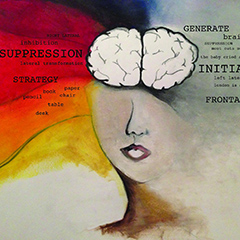 Professor Gail Robinson: Cognitive and clinical neuropsychology
Professor Gail Robinson: Cognitive and clinical neuropsychologyThe Robinson group's clinical research is focused on both theoretical questions about brain-behaviour relationships like the crucial mechanisms for the executive control of language, and clinical questions regarding cognitive assessment and management of various pathologies including neurodegenerative disorders, neurodevelopmental disorders, brain tumours and stroke.
Professor Pankaj Sah
DirectorQueensland Brain InstituteResearcher profile is public:1Supervisor:Researcher biography:Professor Pankaj Sah is Director of the Queensland Brain Institute (QBI) at The University of Queensland (UQ). He is renowned for his work in understanding the neural circuitry of the amygdala, an area of the brain that plays a central role in learning and memory formation. Dysfunction of the amygdala leads to a host of anxiety-related disorders. His laboratory uses a combination of molecular tools, electrophysiology, anatomical reconstruction, calcium imaging and behavioural studies to examine the electrophysiological signatures of different brain regions and their impact on disease. Recently, his laboratory has been working with patients undergoing electrode implantation for deep brain stimulation, which is used to treat a variety of disorders such as Parkinson's disease, Tourette's syndrome and essential tremor. Professor Sah trained in medicine at The University of New South Wales and, after completing his internship, gained a PhD from the Australian National University. Following postdoctoral work at the University of California, San Francisco, and UQ, he established his own laboratory at the University of Newcastle in 1994. He then joined the John Curtin School of Medical Research at the Australian National University as a group leader in 1997. He was recruited to QBI as a founding member in 2003, and has been Director since July 2015. Professor Sah has published over 110 papers in international peer-reviewed journals. He is also the Editor-in-Chief of the Nature Partner Journal npj Science of Learning, the first journal to bring together the findings of neuroscientists, psychologists, and education researchers to understand how the brain learns.
Body: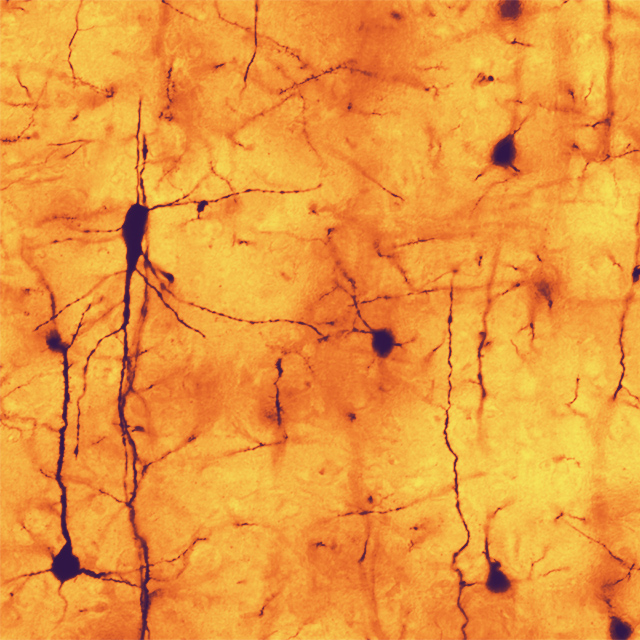 Professor Pankaj Sah: Synaptic Plasticity
Professor Pankaj Sah: Synaptic PlasticityThe Sah laboratory uses electrophysiology and molecular techniques, in conjunction with behavioural studies, to understand the neural circuitry that underpins learning and memory formation. Using animal models, the laboratory focusses on the part of the brain called the amygdala, and a Pavlovian learning paradigm called fear conditioning.
Professor Karen Thorpe
ARC Australian Laureate Fellow - Group LeaderQueensland Brain InstituteResearcher profile is public:1Supervisor:Researcher biography:Karen Thorpe is Australian Research Council, Laureate Professor and Group Leader in Child Development, Education and Care at the Queensland Brain Institute, University of Queensland. Her research is grounded in the understanding that early learning experiences shape brain development and are critical in establishing trajectories of health, social inclusion and learning across the lifespan. A particular focus of her work is early care and education environments including parenting, parent work, quality of care and education, and the early years workforce.
Karen leads a multi-disciplinary team of developmental scientists undertaking large scale longitudinal studies with embedded studies to explicate mechanisms that enable or limit children's life chances. She was Foundation Psychologist on the Avon Longitudinal Study of Parents and Children at the University of Bristol, UK; led the evaluation of the Preparing School Trial for Queensland Government; led the Queensland team of the E4Kids study of quality in Australian Early Education and Care and a recent data linkage project with Queensland Government to track participants through their school journey. In partnership with Queensland Government, Goodstart Early Learning and the Creche and Kindergarten Association she led a large population study of the Australian ECEC workforce (ARC Linkage). Her current research, as a chief investigator on the ARC Centre of Excellence for Children and Families across the life course, and through an ARC Laureate fellowship, is to examine barriers to providing high quality early learning services in developmentally vulnerable communities.
In 2013 and again in 2019 Karen was named by the Australian Financial Review as among Australia's 100 Women of Influence for the impacts of her research on educational and family policy. In 2020 she was recognised by Australian Government, Advance Global Awards for her international contribution to education. Karen chairs the Australian Early Years Reference Council for Evidence for Learning, Australia whose remit is to build a strong evidence-base in early childhood education and care with focus on translation into policy and practice. She is also director on the board of the Australian Research Council for Children and Youth and advisor to the national board of Beyond Blue – Be You.
Body: Professor Karen Thorpe: Child Development, Education and Care
Professor Karen Thorpe: Child Development, Education and CareThe Thorpe group seek to understand the effects of early life experiences on trajectories across the life course. Their focus is on the first five years of life, a formative period in human brain development in which the quality of experiences, and particularly social interactions, shape brain architecture. The group work with government and non-government agencies to inform child and family policy and practice strategies that improve children’s development and learning.
Associate Professor Susannah Tye
Principal Research Fellow - GLQueensland Brain InstituteResearcher profile is public:1Supervisor:Researcher biography:Dr. Susannah Tye joined the Queensland Brain Institute in 2017 and has established a research program within the Asia Pacific Centre for Neuromodulation (QLD, Australia). Before returning to Australia, Dr. Tye directed the Translational Neuroscience Laboratory at the Mayo Clinic (2012-2017). While there she led efforts to develop brain stimulation devices (for rodents and humans) that can quantify neural activity and neurotransmitter dynamics in the living brain. This body of work now forms the basis of the neuropsychiatric arm of the Mayo Clinic’s Deep Brain Stimulation Consortium. Her specific research expertise are in utilising voltammetric (electrochemical) recording techniques to monitor rapid, synaptic neurotransmission in the living brain.
Dr. Tye has over ten years of experience studying neuromodulation in preclinical rodent models and human patients. Her long-term goal is to bridge preclinical and clinical studies to maximise translational impact, specifically in terms of improving patient outcomes for those with severe refractory psychiatric illness. Towards this end, she maintains many international collaborations with both clinical and basic science researchers. Dr. Tye also has a longstanding interest in mentoring young scientists to help them expand their skills in preclinical and basic science research and achieve a successful research career.
Body: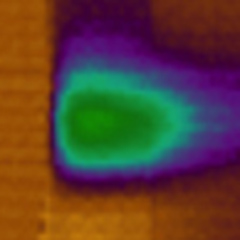 Associate Professor Susannah Tye: Functional neuromodulation and novel therapeutics
Associate Professor Susannah Tye: Functional neuromodulation and novel therapeuticsOur research is interdisciplinary, drawing on approaches and techniques from neuroscience, molecular biology, biochemistry, and neuroengineering. We are particularly interested in the potential to use key biomarkers of refractory illness to diagnose and inform treatment decisions, and the possibility that real-time feedback may be used to customise neuromodulatory treatments. Ongoing projects in the lab address both basic and translational neuroscience questions.
Professor Bruno van Swinderen
Professorial Research Fellow - GLQueensland Brain InstituteResearcher profile is public:1Supervisor:Researcher biography:Associate Professor Bruno van Swinderen received his PhD in Evolutionary and Population Biology in 1998 from Washington University in St. Louis, Missouri. His graduate work was on general anesthesia in a Caenorhabditis elegans model, applying both quantitative genetics and molecular genetic approaches. For his postdoc at The Neurosciences Institute (NSI) in San Diego, California (1999-2003), he switched to Drosophila melanogaster to develop methods of studying perception in the fruit-fly model. He ran a lab at NSI from 2003 to late 2007.
In February 2008, Associate Professor van Swinderen established a new laboratory at the Queensland Brain Institute.
Bruno van Swinderen's group use Drosophila as a genetic model system to study mechanisms of perception in the brain abd are interested in three phenomena: selective attention, sleep, and general anesthesia. Their focus is on visual perception and how it is affected by these different arousal states. Most of our current effort is in understanding visual selective attention in the fly brain and how attention processes interact with memory formation. Toward this goal, they use various novel visual paradigms in a Drosophila molecular genetics context.
Body: Professor Bruno van Swinderen: Drosophila behaviour and cognition
Professor Bruno van Swinderen: Drosophila behaviour and cognitionOur long-term vision is to understand how a brain produces subjective awareness. To achieve this long-term goal, we have focussed on understanding three brain states where awareness can be lost: general anaesthesia, sleep, and selective attention. During selective attention, we become unaware of objects outside our focus. How does that work? During sleep, the outside world is more broadly suppressed. Why is this necessary? Finally, during general anaesthesia, a bewildering array of drugs achieve the same, but deeper. By studying these three ways in which consciousness is lost, we hope to arrive at a better understanding on what is necessary for consciousness to exist – in any animal.
Associate Professor Jana Vukovic
Principal Research FellowQueensland Brain InstituteResearcher profile is public:1Supervisor:Researcher biography:The Vukovic laboratory investigates how brain function is sculpted and influenced by the immune system. Specifically, we examine the role of brain's main resident immune cell population (i.e. microglia), as well as various peripheral immune cells, on learning and memory in mice. We are interested in defining the contribution of immune cells to such higher cognitive tasks, including for neuroinflammatory conditions where learning and memory deficits can occur, e.g. following traumatic brain injury, cancer treatment, and ageing. We have established an array of genetic and pharmacological tools alongside robust behavioural assays to directly probe the function of these immune cells in both the healthy and diseased brain. The ultimate goal of our work is to link cellular and molecular events to altered behaviour, and to harness the brain's intrinsic regenerative potential for stimulating optimal cognitive function.
A neuroimmunologist, Dr Vukovic received her PhD in 2008 from The University of Western Australia after working on the repair of injured nerve cell connections. She joined QBI in 2009 to work in Professor Perry Bartlett's laboratory as a Postdoctoral Research Fellow, before being awarded a Queensland Government Smart Futures Fellowship to continue her research into the importance of adult neurogenesis for behaviour and how microglia influence this process in ageing. Dr Vukovic demonstrated that microglia can exert a dual and opposing influence over adult neurogenesis (the birth of new neurons) in the hippocampus under different physiological conditions, namely exercise and ageing, and that signalling through the chemokine receptor, CX3CR1, critically contributes towards this (Vukovic et al., 2012, J Neurosci). Dr Vukovic also generated novel evidence that ongoing neurogenesis in the adult hippocampus is critical for new learning but does not play a role in memory recall (Vukovic et al., 2013, J Neurosci).
Dr Vukovic was awarded an ARC Discovery Early Career Researcher Award (2015-2018) and was jointly appointed as a group leader by the UQ School of Biomedical Sciences (SBMS) and QBI in 2015. She heads the Neuroimmunology and Cognition team investigating the interactions between the brain and the immune system in health and disease.
Currently, the group is working on three main projects:
- Identification of microglia-derived molecules that support neuronal survival and stimulate neural stem/progenitor cell expansion
- Characterisation of immune cell contribution to changes in neuronal connectivity
- Immune cell responses to cancer treatment, and their effect on learning and memory
Body: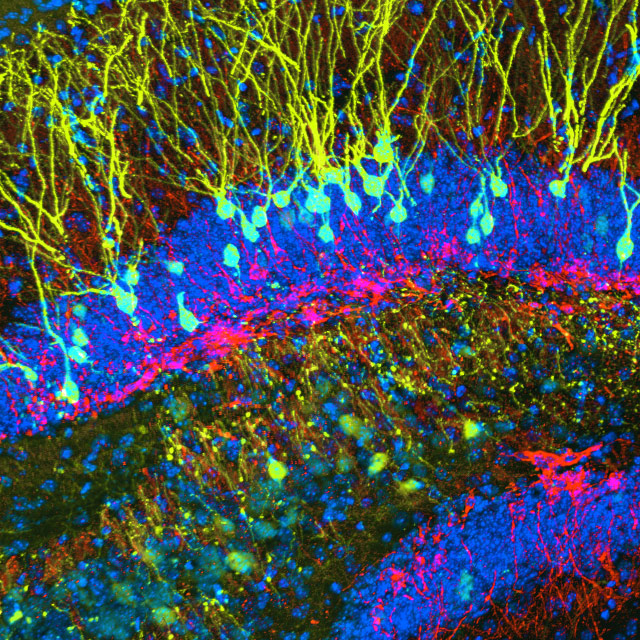 Associate Professor Jana Vukovic: Neuroimmunology and cognition
Associate Professor Jana Vukovic: Neuroimmunology and cognitionThe Vukovic laboratory investigates how brain function is sculpted and influenced by the immune system. Specifically, we examine the role of brain’s main resident immune cell population (i.e. microglia), as well as various peripheral immune cells, on learning and memory in mice. We are interested in defining the contribution of immune cells to such higher cognitive tasks, including for neuroinflammatory conditions where learning and memory deficits can occur, e.g. following traumatic brain injury, cancer treatment, and ageing.
Associate Professor Adam Walker
Ross Maclean Fellow - GLQueensland Brain InstituteResearcher profile is public:1Supervisor:Researcher biography:Dr Adam Walker received his BSc(Hons) in Biochemistry from the University of Tasmania, and PhD in Neuroscience from the Florey Institute of Neuroscience and Mental Health at the University of Melbourne, focused on understanding the molecular mechanisms of motor neuron disease (MND). He undertook a postdoctoral fellowship with Professor Virginia Lee at the Center for Neurodegenerative Disease Research, University of Pennsylvania (2011-2015), developing new transgenic TDP-43 mouse models of disease. Dr Walker was previously an NHMRC CJ Martin Overseas Biomedical Research Fellow and was awarded an NHMRC RD Wright Career Development Fellowship (2018-2022), to continue his research on neurodegenerative diseases. His research has been supported by fellowships and project grants from the Australian National Health and Medical Research Council, the Australian National Foundation for Medical Research and Innovation, Dementia Australia, Motor Neuron Disease Research Institute of Australia, MonSTaR Foundation and the Cure for MND Foundation.
Body: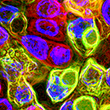 Dr Adam Walker: Neurodegeneration pathobiology
Dr Adam Walker: Neurodegeneration pathobiologyThe Walker lab uses biochemistry and imaging techniques to study neuronal cell culture and genetically modified mouse models of MND and FTD, alongside analysis of human brain and spinal cord samples, to investigate the involvement of TDP-43 in disease. Importantly, Dr Walker previously characterised new TDP-43 mice that develop both pathology and motor phenotypes reminiscent of human disease, which are a vital new tool for both investigations of disease mechanisms and pre-clinical testing of therapeutics.
Dr Tara Walker
Research Fellow & Group Leader, Senior Research FellowQueensland Brain InstituteResearcher profile is public:1Supervisor:Researcher biography:Dr Tara Walker is a Senior Research Associate at the Queensland Brain Institute. Dr Walker's group is investigating the mechanisms governing the lifelong production of neurons in the adult brain (adult neurogenesis). Tara studied Biotechnology as an undergraduate at the Queensland University of Technology (Brisbane, Australia), before carrying out her PhD in the field of Plant Biotechnology. In 2003 she made the transition to neuroscience, joining the Queensland Brain Institute (QBI) and the group of Professor Perry Bartlett. Here she became interested in the field of adult hippocampal neurogenesis, particularly in its activity-dependent regulation. In 2010, she joined the group of Professor Gerd Kempermann at the Center for Regenerative Therapies in Dresden, Germany, where she was awarded a Marie Curie International Incoming Fellowship in 2011. In July 2018 she returned to QBI to take up a position in the newly developed Centre for Restorative Neurosciences as a Senior Research Associate, where she will apply her knowledge of neural stem cell biology to stroke research.
Body:Research interest
We are interested in understanding the fundamental mechanisms governing the lifelong production of neurons in the adult brain. Adult neurogenesis, as this process is termed, decreases with age and this age-related decline in neurogenesis results in an associated decline in learning processes that are controlled by the hippocampus.
In previous work, together with Professor Perry Bartlett, we provided the first evidence of a true, but normally latent, hippocampal stem cell population and identified a mechanism through which the production of new neurons could be stimulated to replace or repair damaged cells in neurodegenerative diseases. More recently our focus has been on the systemic regulation of adult neurogenesis. We use the physical exercise model of increased neurogenesis to investigate cross-talk between the brain and the peripheral immune system, and in this context have investigated the interaction between T cells, mast cells and platelets and the neural stem cell niche.
The control of cell death provides a key mechanism in the regulation of adult hippocampal neurogenesis. We have demonstrated that ferroptosis, a recently identified, caspase-3-independent mode of programmed cell death, is a fundamental mechanism underlying the regulation of adult hippocampal neurogenesis. This form of cell death is mediated by the dietary trace element selenium. We have shown that selenium supplementation results in increased neural progenitor cell survival and neuronal-lineage differentiation in the hippocampus of young adult and aged mice. Ferroptotic cell death has been linked to the cell death that occurs in a number of neurodegenerative diseases and stroke. A key aspect of our future research program will be to investigate whether blocking ferroptotic cell death via dietary or environmental interventions can rescue the behavioural and cognitive decline observed in an animal model of stroke.
Professor Naomi Wray
Affiliate NHMRC Leadership FellowQueensland Brain InstituteResearcher profile is public:1Supervisor:Researcher biography:Naomi Wray is the Michael Davys Professor in the Department of Psychiatry, University of Oxford. She holds an appointment at the Institute for Molecular Bioscience (IMB) within the University of Queensland. She joined UQ Queensland Brain Institute in 2011 moving to the IMB in 2015. She was Head of the Centre for Population & Disease Genomics within IMB 2018-2023. Her Oxford appointment started in 2023.
Her research focuses on development and application of quantitative genetics and genomics methodologies across complex diseases, disorders and traits, but particularly psychiatric-related traits.
She is a National Health and Medical Research Council (NHMRC) Leadership Fellow, a Fellow of the Australian Academy of Science and a Fellow of the Australian Academy of Health and Medical Science. In 2020 she was awarded the NHMRC Elizabeth Blackburn Award for Leadership in Basic Science and the 2021 International Society of Psychiatric Genetics Ming Tsuang Lifetime Achievement Award. She is a Clarivate Highly Cited researcher.
She was Director of the Program in Complex Trait Genomics (PCTG) funded as an NHMRC Program Grant 2017-2022. She plays a key role in the International Psychiatric Genomics Consortium and established the sporadic ALS Australia systems genomics consortium (SALSA) funded by the MND Research Australia IceBucket Challenge and FightMND. She is a co-investigator on the Australian Genetics of Depression Study (AGDS) and is currently launching the AGDS-Cello project focussed on establishing a cell line resource from participants with a detailed history of anti-depressant use and response measures. She is part of an NHMRC Synergy (2023-2027) "Rhythms and blues: Personalising care for body clock dysfunction in mood disorders".
She is secretary of the International Society of Psychiatric Genetics, and is on the editorial advisory boards of JAMA Psychiatry, Neuron, Royal Society Open and Research Directions: Depression.
Body: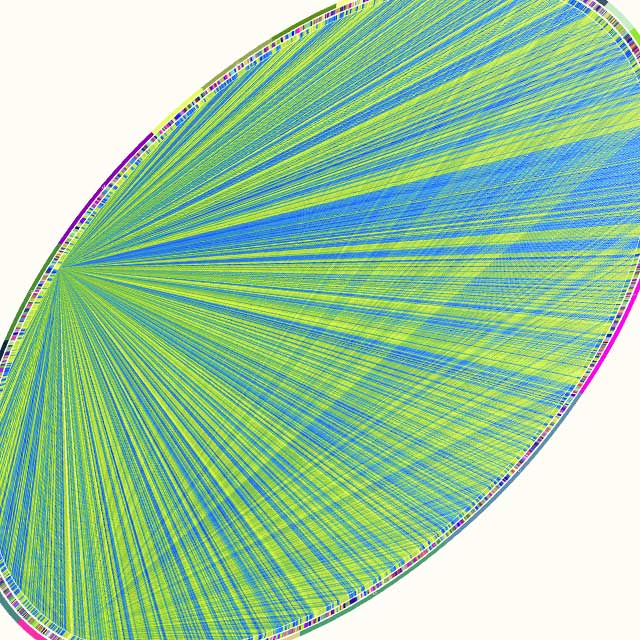 Professor Naomi Wray: Program in complex trait genomics
Professor Naomi Wray: Program in complex trait genomicsThe Wray laboratory focusses on understanding the genetic contribution to psychiatric and neurological disorders. The group specialises in applying new analytical methods of genomic data to provide insights into these complex disorders, with an ultimate goal to improve diagnosis, prognosis and treatments. The lab plays a key role in the international Psychiatric Genomics Consortium and Prof Wray co-leads the sporadic ALS Australia systems genomics consortium (SALSA), funded by the IceBucket Challenge.
Associate Professor Steven Zuryn
Principal Research Fellow - GLQueensland Brain InstituteResearcher profile is public:1Supervisor:Researcher biography:Dr Steven Zuryn is a molecular geneticist within the Queensland Brain Institute, The University of Queensland. After training as a PhD in genetics, he undertook postdoctoral reseach at the Institut Génétique Biologie Moléculaire Cellulaire (IGBMC) in Strasbourg, France. He now leads an international and diverse team of postdoctoral, PhD, Honours, and undergraduate investigators studying epigenetics and mitochondrial biology. His laboratory's work focuses on the role and impact of mitochondrial dysfunction in neurodegenerative diseases and is particularly fascinated with mutations that accumulate within the mitochondria's own genome during ageing. His research has been published in the high profile journals Science, Nature Cell Biology, and Nature Communications and has appeared in multiple mainstream media outlets. For his research, he has received multiple international prizes and fellowships, been awarded grants from the NHMRC and ARC as primary chief investigator and is generously supported as a fellow of the Stafford Fox Research Foundation. Steven is passionate about communicating the critical importance of fundamental scientific research as a long-term human endeavour.
Follow the Zuryn lab on Twitter: @zurynlab
Visit the Zuryn lab website.
Body: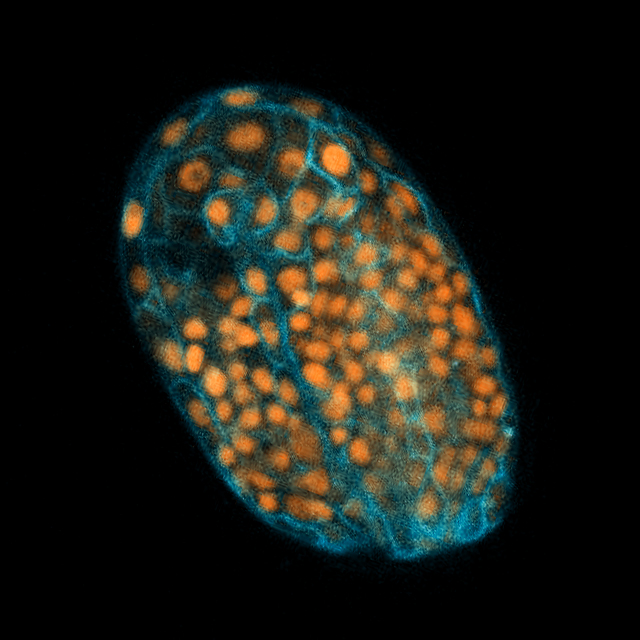 Dr Steven Zuryn: Epigenetics and Mitochondrial Biology Lab
Dr Steven Zuryn: Epigenetics and Mitochondrial Biology LabThe Zuryn lab uses cutting-edge molecular techniques in the highly successful genetic model organism C. elegans as well as human cell culture to understand the fundamental mechanisms that promote disease progression caused by mitochondrial dysfunction. Mitochondria harbour their own genome (mtDNA), which is prone to accumulating mutations as we age leading to dysfunction that may contribute to the progressive nature of neurodegenerative diseases.
- Neurobiologist Professor Justin Marshall talks to ABC's Richard Fidler about colour vision in fish.
- 21 Jun 2023Professor Helen Cooper
Queensland Brain Institute
University of Queensland
Host: Hilary Yong


